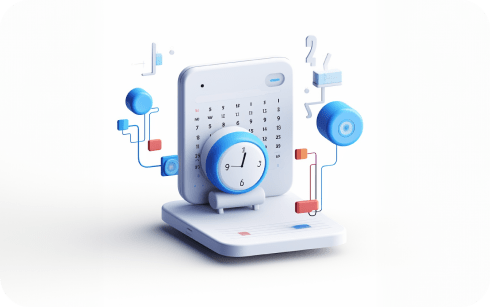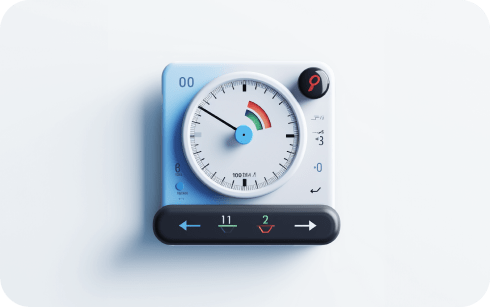
24/7-Verfügbarkeit
Chatbots bieten rund um die Uhr Kundensupport und verbessern damit die Verfügbarkeit eines Kundendienstes.
Chatbots, die durch Fortschritte in den Bereichen künstliche Intelligenz (KI), Verarbeitung natürlicher Sprache (NLP) und Automatisierung angetrieben werden, sind digitale Einheiten, die menschliche Konversationen nachahmen sollen. Diese fortschrittlichen Softwareanwendungen führen Dialoge mit menschlichen Benutzern in ihrer natürlichen Sprache, verstehen komplexe Anfragen und führen Aufgaben effizient aus. Durch die Kombination der Leistungsfähigkeit von KI und Prozessautomatisierung sind Chatbots immer ausgefeilter geworden. Ein konkretes Beispiel hierfür sind Chatbots im Kundenservice, die Benutzer bei der Nachverfolgung ihrer Bestellungen unterstützen können, indem sie sofortige, automatisierte Antworten liefern, die eine nahtlose, menschenähnliche Interaktion simulieren, und das alles ohne menschliches Eingreifen.


Chatbots bieten rund um die Uhr Kundensupport und verbessern damit die Verfügbarkeit eines Kundendienstes.

Die Technologie bearbeitet mehrere Anfragen gleichzeitig.

Chatbots reduzieren den Bedarf an großen Kundenserviceteams und deren Reisekosten.

Bots antworten sofort und verbessern damit die Kundenzufriedenheit.

Die Technologie sammelt wertvolle Kundeninformationen für Ihre Unternehmensanalytik.

Bots gewährleisten eine gleichbleibende Servicequalität, frei von menschlichen Inkonsistenzen.












Chatbots sind weit verbreitet und verändern die Art und Weise, wie wir interagieren und Dienstleistungen nutzen. In der Bankenbranche unterstützen sie Kunden bei Fragen zu ihren Konten, Transaktionen und Finanzierungen oder Geldanlagen. Dadurch verbessert sich die Kundenerfahrung erheblich. Auch im Gastgewerbe und bei Reiseanbietern werden Chatbots eingesetzt, um Reservierungen oder Umbuchungen abzuwickeln, Reiseinformationen bereitzustellen und personalisierte Empfehlungen anzubieten. In der Steuerberatung helfen Chatbots bei Standardfragen zu Steuerklassen, individuellen Steuersätzen oder Freibeträgen. In Finanzämtern betreuen sie Bürger bei Fragen zur Erstellung von Steuerklärungen und beantworten Fragen zu fälligen Rückerstattungen. Im Gesundheitswesen übernehmen sie die Terminvergabe und im Einzelhandel geben sie Einkaufstipps. Der Einsatzbereich von Chatbots kennt schon heute kaum noch Grenzen.















Robotic Process Automation (RPA) greatly benefits from advancements in Artificial Intelligence (AI). While RPA is excellent at following rules-based processes, AI provides the capability for RPA bots to learn, adapt, and make decisions, enhancing their functionality. AI-powered cognitive capabilities like Natural Language Processing (NLP), Machine Learning (ML), and Computer Vision enable bots to understand and respond to text or voice commands, learn from historical data, and recognize images, respectively. For instance, in customer service, AI-powered RPA can analyze customer sentiments in real-time, allowing bots to handle customer complaints and queries more effectively, delivering personalized responses and improving overall customer experience.
